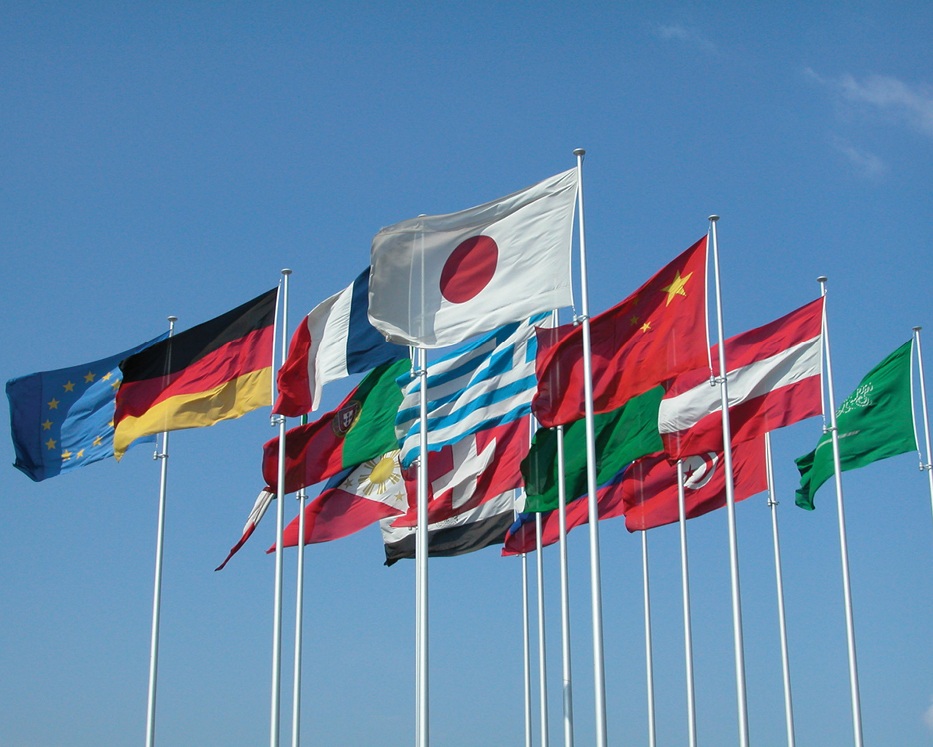Key Takeaways
- The OECD's first global tax meeting of the second Trump era kicks off this week.
- Trump remains strongly opposed to the 15% global minimum tax, weighing retaliation.
- Some faint glimmers of hope for agreement on R&D, safe harbors.
- Tariffs: Not as huge a revenue windfall as hoped?
- Canada has faced pressure to become one of the United States before.
The Inclusive Framework, the 147-jurisdiction advisory group formed by the Organization for Economic Cooperation and Development as part of its project to overhaul the global tax system, is holding its first meeting of the second Trump era this week, in Cape Town, South Africa.
While most of the meeting will happen behind closed doors, it's sure to be a vastly different proceeding than the meetings of the past few years. The U.S. is now openly reneging on its participation in the Two-Pillar project, including the 15% global minimum tax that President Joe Biden touted as a major accomplishment in 2021. The Trump administration has investigated retaliation against countries which use the global minimum tax (also called Pillar Two) against U.S. companies, and while they have yet to publicly follow up on their initial announcement, few expect the U.S. Treasury Department to take a conciliatory approach to negotiations.
Also, some key Treasury officials, such as Kenneth Kies, President Trump’s pick to be assistant secretary for tax policy, are still awaiting confirmation, which could be slowing down technical negotiations. (Rebecca Burch, previously at Ernst & Young LLP, was announced Monday as the deputy assistant secretary for international tax affairs, a key figure in the OECD dealings which does not require Senate confirmation.)
All that said, there are still a few faint lingering hopes that the sides might be able to find common ground--or at least areas where they can agree to disagree.
One of the biggest obstacles to overcome is how Pillar Two treats non-refundable tax credits such as the U.S. credit for research and development. Currently, companies that claim the R&D credit are at risk for being taxed under the Pillar Two regime by foreign countries where they operate, if their effective tax rate drops below 15%. That’s true even if their rate is only that low in the U.S.--the Pillar Two system looks at all of the countries where a company operates, which is one of the biggest points of contention between the OECD and U.S. critics.
One potential solution that’s been floated by some is to grant favorable treatment to the R&D credit, and other credits which are based on company expenditures–rather than a company’s profits. The argument here is that credits which are based on spending are far less likely to promote income-shifting or abuse than open-ended credits that rise with a company’s profits. This change would benefit the U.S., but many other countries as well.
Another hope is that the OECD may be convinced to permanently extend the transitional safe harbor which grants companies some protections against Pillar Two if they’re based in a country with at least a 20% headline corporate tax rate. (Perhaps not coincidentally, the U.S. corporate rate is 21%). But the justification for the safe harbor, which only lasts through 2025, is that companies shouldn’t be punished while their home jurisdictions set up Pillar Two legislation. Can nations be convinced to extend it permanently?
Trump hasn't been shy about shaking up multilateral institutions and agreements in pursuit of what he sees as America's best interests--but as today's tariff announcement shows, his desire to make deals isn't completely gone, either.
Speaking of Tariffs....
As of this afternoon, Trump's 90-day pause on most of the reciprocal tariffs is still in force. But that doesn't mean that all multinational businesses are suddenly in the clear. Here are some recent looks at the global shakeup.
U.S. Tariffs Solidify MEPs’ Stance on EU Competition Rules – Elodie Lamer, Tax Notes ($):
US Tariff Revenue Gains Seen as Undercut by Declining Trade – Jarrell Dillard, Bloomberg Tax ($):
The lower figure reflects expectations for a sharp downturn in trade. As a result of tariffs, total US imports of goods are expected to drop by around 30%, according to the Bloomberg Economics modeling.
Starmer Calls For US Trade Deal That Avoids Tax Hikes – Josh White, Law360 Tax Authority ($):
Starmer pledged more support for the British car industry, including subsidies and changes to net-zero emissions rules, in response to U.S. tariffs hitting the sector last week. He stressed that the government still hopes to cut a deal in his speech at Jaguar Land Rover's plant in Solihull.
Using Tariffs to Make Canada a State? It's Been Tried Before – Joseph Thorndike, Tax Notes ($):
Other International Tax Items
Public Domain Superhero of the Week
Every week, a new character from the Golden Age of Comics, who’s fallen out of use.
This week’s entry: The Blue Streak

Debut Year:1945
Debut Publication: Headline Comics #13
Origin Story: A skilled acrobat whose family is killed by mobsters. (A bit familiar.)
Superpowers: No superpowers, but he's a skilled acrobat and daredevil.
Eide Bailly's International Tax Team and our affiliates at HLB, The Global Advisory and Accounting Network, stand ready to assist with your worldwide tax needs.
Make a habit of sustained success.



